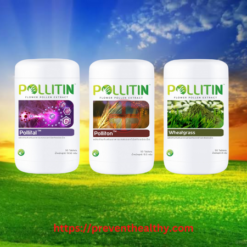Subtotal: $165.00
Egg White Protein, Role Of Nutrients
Egg White Protein
![]()
Egg White Protein
Protein plays a crucial role in a balanced diet, and finding high-quality sources of protein can be challenging. Egg white protein is a popular option for individuals looking to meet their protein needs while avoiding the fat and cholesterol present in whole eggs. In this guide, we will explore the intricacies of egg white protein, including its composition, nutritional profile, and benefits. Additionally, we will delve into how egg white protein is made and provide ideas for incorporating it into your diet.
What is Egg White Protein?
Egg white protein, as the name suggests, is the protein extracted from the whites of eggs. It is a complete protein, meaning it contains all the essential amino acids required by the human body. Amino acids are the building blocks of protein and are essential for the growth, repair, and maintenance of various body tissues.
Composition of Egg White Protein
Egg white protein primarily consists of albumin, a type of globular protein that contributes to its smooth and liquid-like texture. Additionally, it contains a smaller amount of ovotransferrin, another type of globular protein. These proteins provide the structure and function necessary for the early development of a growing embryo.
Nutritional Profile of Egg White Protein
Egg white protein is not only rich in protein but also low in calories, fat, and carbohydrates. A typical serving of egg white protein powder contains around 25 grams of protein, 0 grams of fat, and only 2 grams of carbohydrates. Furthermore, it is cholesterol-free, making it a favorable option for individuals watching their cholesterol intake.
Benefits of Egg White Protein
Egg white protein offers numerous benefits for overall health and fitness. Firstly, it aids in muscle growth and recovery due to its high protein content and amino acid profile. The amino acids found in egg white protein are readily absorbed and utilized by the body, promoting efficient muscle repair and growth. Additionally, it is an excellent source of protein for individuals following a low-fat or low-cholesterol diet, as it allows them to meet their protein needs without consuming excess fat or cholesterol.
How is Egg White Protein Made?
Egg white protein is typically made by separating the egg whites from the yolks and then subjecting the whites to a process that removes any bacteria or impurities. The liquid egg whites are then pasteurized to ensure food safety. After pasteurization, the egg whites are further processed to remove any excess moisture and transformed into a powdered form using a drying technique such as spray drying.
How to Incorporate Egg White Protein into Your Diet
Egg white protein powder is a versatile ingredient that can be easily incorporated into various recipes and meals. Here are some ideas on how to use it:
Smoothies and Shakes
One of the most popular ways to consume egg white protein powder is by adding it to smoothies or shakes. Mix a scoop of egg white protein powder with your favorite fruits, vegetables, and other ingredients in a blender for a protein-packed and nutritious beverage.
Baking and Cooking
Egg white protein powder can be used as a substitute for traditional flour in baking recipes to increase the protein content. It can also be added to pancake or waffle batter for a protein boost. Additionally, it can be used as a binding agent in recipes such as meatballs or veggie patties.
Protein Bars and Snacks
Homemade protein bars or snacks can be made by combining egg white protein powder with nuts, seeds, and other ingredients. These bars make for a convenient and healthy snack option during the day.
Frequently Asked Questions (FAQs)
Q: Is Egg White Protein Safe for Everyone?
A: Egg white protein is generally safe for consumption by most individuals. However, individuals with egg allergies should avoid egg white protein or consult a healthcare professional before consuming it.
Q: Is Egg White Protein Suitable for Vegans?
A: No, egg white protein is derived from eggs and, therefore, not suitable for those following a vegan diet. Vegans can opt for plant-based protein

 Cancer Health Care Set 1
Cancer Health Care Set 1 
Recommended Products
Skin Inflammation Health Care Set
Wheatgrass
Bile Duct Cancer Health Care Set
Encephalitis Health Care Set